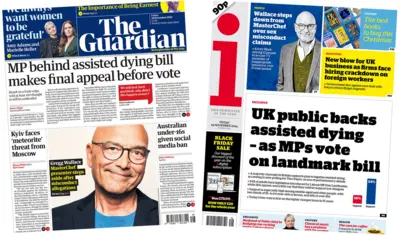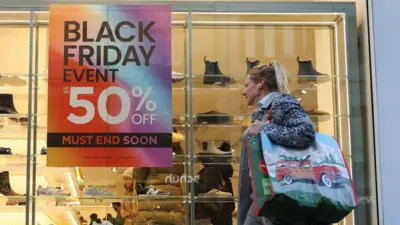We've updated our Privacy and Cookies Policy
We've made some important changes to our Privacy and Cookies Policy and we want you to know what this means for you and your data.
CO2 shortage massive risk to animal welfare in Wales, says minister
Image source, Reuters
A shortage of carbon dioxide (CO2) poses a "massive animal health and welfare" issue in Wales, the country's agriculture minister has said.
Lesley Griffiths said abattoirs could be hit but the levers to act were with UK ministers in London.
Ministers from the Welsh and UK governments discussed the crisis on Monday evening.
One of Wales' largest chicken producers has warned it could have to cut production.
The shortage of CO2, which is used in the food industry to stun pigs and chicken for slaughter, is a knock-on effect from rising gas prices.
Soaring costs led two fertiliser factories, owned by CF Industries, to halt production.
The UK government announced a deal with the company to restart production on Tuesday afternoon.
Before the announcement Lesley Griffiths said the Welsh government was "closely monitoring" the situation.
She told a press conference: "There is a massive animal health and welfare issue here, if our abattoirs aren't able to process meat.
"Since we left he European Union we can't rely on Europe to makeup the shortfall of CO2."
'Building for weeks'
The minister said the Minister for Climate Change, Julie James, met Conservative UK Business Secretary Kwasi Kwarteng on Monday, while Ms Griffiths will meet retailers on Wednesday to "listen to their concerns".
"This has been building up over several weeks.
"We need the UK government really to start doing some long term planning".
When pressed on what the Welsh government was doing about the issue, she said the "levers" to act were with the UK government.
As well as to stun animals, CO2 is widely used in the food industry in brewing and packaging for meat and salads to prolong shelf life.
It is also used in beer and fizzy drinks, as well as in the vacuum-packing process.
Top Stories
More to explore
Most read
Content is not available








